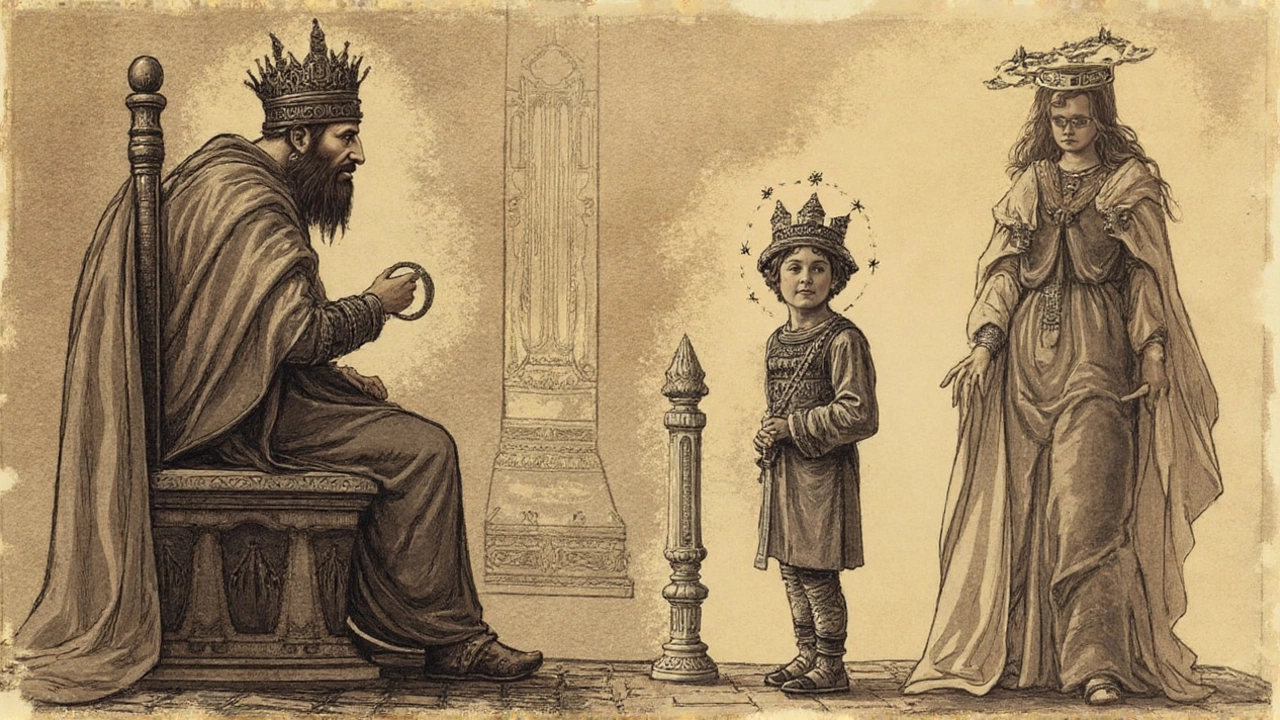Divine Kingship: What It Is and Why It Still Matters
When you hear "divine kingship" you probably picture a ruler who claims to rule by god's will. It’s a term that shows up in history books, myths, and even modern politics. In simple words, divine kingship is the idea that a king’s right to rule comes from a higher power, not just from force or inheritance. This belief gave monarchs a powerful excuse to make decisions, collect taxes, and lead wars.
How the Idea Started
Ancient Egypt is a classic example. Pharaohs were called "sons of Ra" and pictured as living gods. Their authority wasn’t just political; it was spiritual. The same pattern appeared in Mesopotamia, where kings said they were chosen by the gods to keep order. In Europe, the concept shifted to "the divine right of kings" during the Middle Ages. Kings said they were appointed by God, so no one could legally challenge them.
These claims weren’t just for show. They helped keep societies stable. If the people believed their ruler was holy, they were more likely to obey tax laws, support wars, and accept the ruler’s decisions without protest. The ruler, in turn, used the belief to legitimize their power and punish dissent as blasphemy.
Modern Echoes of Divine Kingship
Today, most countries have moved away from explicit divine claims. Yet, the idea lingers. Some modern monarchs still use religious ceremonies to mark their reign, like the British coronation where the monarch swears an oath to God. In some cultures, leaders still draw on spiritual authority to boost their image, even if they don’t claim actual god‑hood.
The lasting impact can be seen in how people view leadership legitimacy. When a leader is linked to religion or a higher purpose, supporters often overlook flaws or policy failures. That’s why understanding divine kingship helps explain why certain leaders can stay in power despite criticism.
For anyone interested in history, politics, or culture, knowing the basics of divine kingship gives a clearer picture of how power has been justified across time. It also offers a lens to critique modern leaders who still rely on spiritual or moral authority to strengthen their rule.
In short, divine kingship is more than an old concept – it’s a tool that shaped empires, influenced today’s monarchies, and still affects how people think about authority. Recognizing its patterns can help you spot when power is being wrapped in holy language, whether in a museum exhibit or a current news story.
Posted By Caspian Beaumont On 23 Sep 2025 Comments (0)
Why Divine Kingship Shapes Every Rosh Hashanah Moment
Explores how the theme of malchuyot (divine kingship) drives the liturgy, psychology, and practice of Rosh Hashanah, revealing the tension between judgment and celebration and its impact on personal repentance.
READ MORE